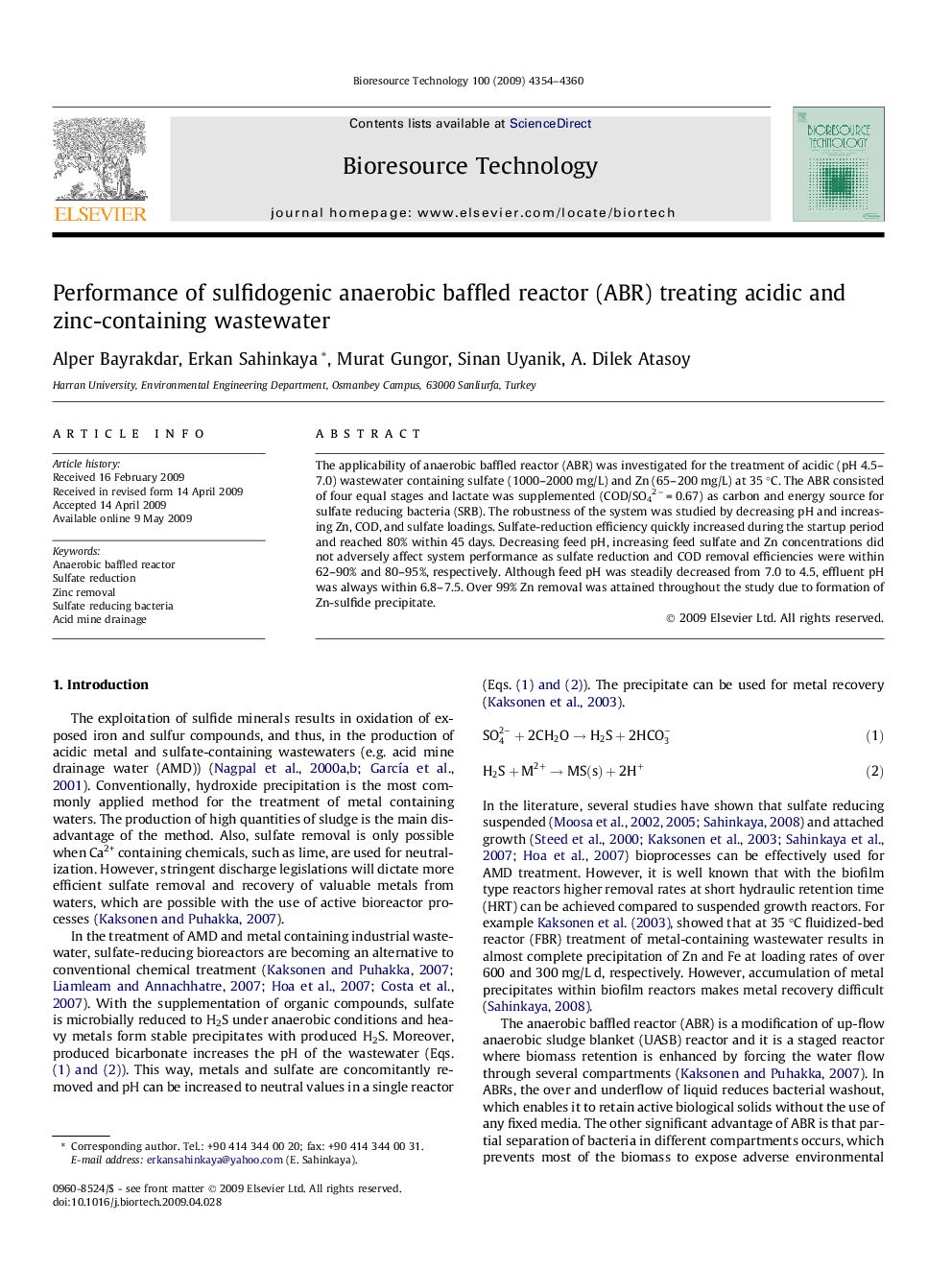| Article ID | Journal | Published Year | Pages | File Type |
|---|---|---|---|---|
| 684305 | Bioresource Technology | 2009 | 7 Pages |
Abstract
The applicability of anaerobic baffled reactor (ABR) was investigated for the treatment of acidic (pH 4.5-7.0) wastewater containing sulfate (1000-2000 mg/L) and Zn (65-200 mg/L) at 35 °C. The ABR consisted of four equal stages and lactate was supplemented (COD/SO42â = 0.67) as carbon and energy source for sulfate reducing bacteria (SRB). The robustness of the system was studied by decreasing pH and increasing Zn, COD, and sulfate loadings. Sulfate-reduction efficiency quickly increased during the startup period and reached 80% within 45 days. Decreasing feed pH, increasing feed sulfate and Zn concentrations did not adversely affect system performance as sulfate reduction and COD removal efficiencies were within 62-90% and 80-95%, respectively. Although feed pH was steadily decreased from 7.0 to 4.5, effluent pH was always within 6.8-7.5. Over 99% Zn removal was attained throughout the study due to formation of Zn-sulfide precipitate.
Keywords
Related Topics
Physical Sciences and Engineering
Chemical Engineering
Process Chemistry and Technology
Authors
Alper Bayrakdar, Erkan Sahinkaya, Murat Gungor, Sinan Uyanik, A. Dilek Atasoy,
